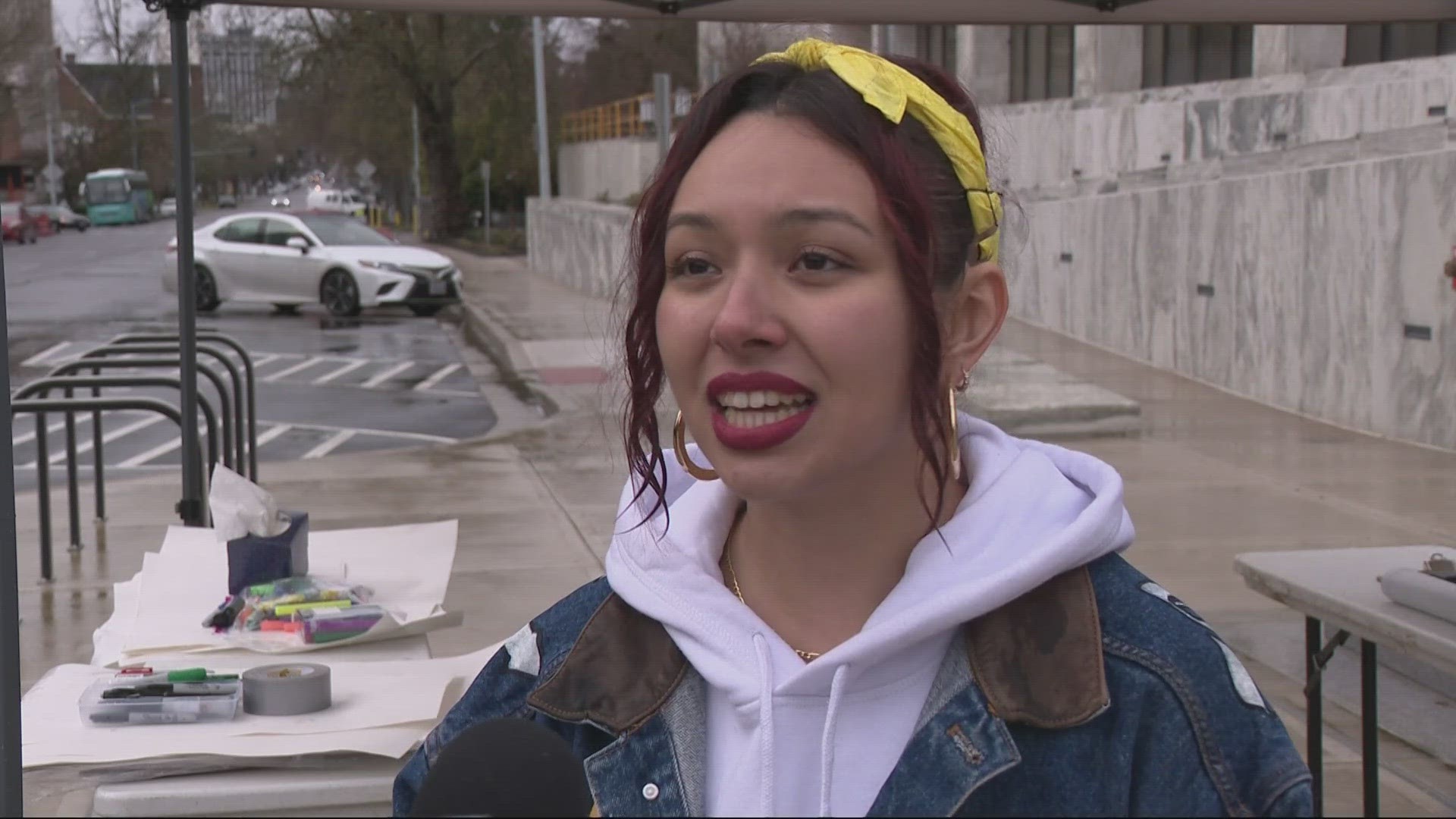SALEM, Ore. — Some Oregonians are pushing back on the passage of House Bill 4002.
Shouts of "For justice, for justice!" and "We won't go back to the war on drugs!" permeated the state capitol Saturday afternoon. Many from the rally were part of a community organization called Unite Oregon.
“Our biggest issue is the racial impact that it will have on our communities, which was clearly stated in the racial impact statement from the Legislature,” said Gloria Ochoa-Sandoval.
The Oregon Senate approved the bill on Friday, partially rolling back Measure 110 by making drug possession a new kind of misdemeanor and toughening enforcement against drug dealers — which social justice advocates say will disproportionately affect Black and Latino communities.
Lawmakers released a racial and ethnic impact statement in late February. The report, created by the Oregon Criminal Justice Commission (CJC), concluded that in some areas, there will be a "racial disparity for Black and African American individuals," resulting in a higher rate of convictions.
More specifically, the CJC noted higher rates of convictions and length of prison sentences when it comes to possession of controlled substances and "Boyd deliveries." Boyd deliveries is a reference to State v. Boyd, a 1988 court ruling focused on the delivery or transfer of controlled substances.
“We're also going to keep a close eye on data as it pertains to race. I know there's some concerns about that,” reassured Senate Republican Leader Tim Knopp, R-Bend, after the Senate vote.
Knopp added that the goal of the bill is not to go back to the war on drugs.
“The war on drugs decades ago disenfranchised minority communities,” he said. “Our goal is not to put people in jail or in prison. It's to stop drug dealers from dealing death, essentially, which is what fentanyl is.”
The CJC's report also found that disparities of convictions for Black and African American people have become smaller in recent years, especially since reform efforts began in 2017.
"Oregon has been moving in a positive direction where disparities became smaller, and it is predicted that the disparities for possession of controlled substances proposed in HB 4002-24 will follow this pattern," the last page of the report reads.
However, Unite Oregon is not pleased with the conclusion, concerned that lawmakers went ahead with legislation despite forecasting harmful impacts to communities of color.
“Many of them [the legislators] said in their speeches that they did not enjoy the racial impact statement, that they understood the harm and yet proceeded to vote yes,” refuted Ochoa-Sandoval.
The bill now awaits Gov. Tina Kotek's signature, the last hurdle before the bill becomes law.
“We are watching," Ochoa-Sandoval said. "We will be here; we will be the ones voting, and we do expect change.”

